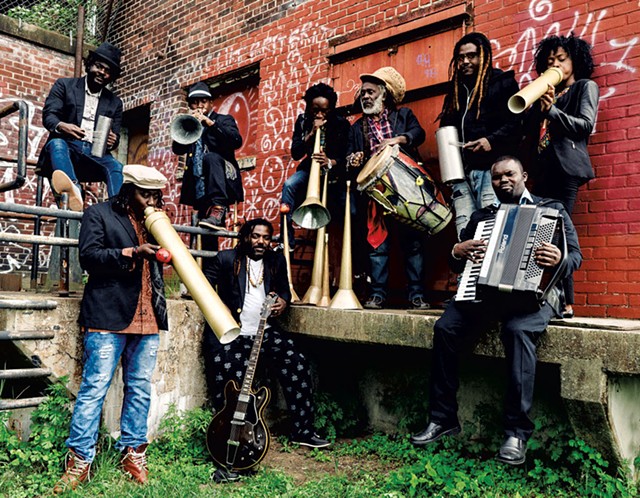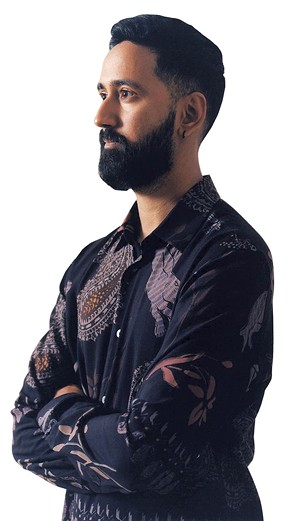Human beings simply like to categorize issues. Eighty p.c of human historical past is simply nerds roaming round doing inventories, from grain storage to household lineage to Dave Matthews Band set lists (you sick fucks). Did I make that stat up? Positive. However I am not fallacious, both. We won’t assist ourselves.
Possibly essentially the most egregious instance of this tendency is our obsession with style in music. I’ve made my bitter grapes recognized on this topic earlier than — I are inclined to assume style is an outdated, pointless and, in some circumstances, damaging assemble. And there’s no style tag I dislike greater than “world music.” I imply, actually, what does that imply? If it isn’t made by a Western artist, it is, uh, from the world? Ya assume? Are you able to think about calling dumplings “world meals”?
My opinion on that is hardly new or remoted. In 1999, former Speaking Heads entrance man David Byrne wrote an op-ed within the New York Instances referred to as “I Hate World Music” — which, contemplating that he based Luaka Bop (a so-called world music label), ought to inform you how strongly he feels concerning the time period. Even musicians who typically discover themselves lumped into the class chafe in opposition to it.
“It solely helps reinforce the narrative that different individuals’s music is much less developed and essential than your personal and does not deserve a extra nuanced method,” mentioned Indian jazz drummer and producer Sarathy Korwar in a 2019 interview in the Guardian.
The time period wasn’t created to relegate 1000’s of musical types to 1 amorphous and ill-fitting style. Many report labels and music festivals that commerce in “world music” had been based with the noble objective of spreading music in all its kinds into Western markets. Some, like Peter Gabriel‘s WOMAD (World of Music, Arts and Dance) competition, based within the early Nineteen Eighties, really predated the time period “world music.”
Whereas the tag carries some unfavorable connotations, I attempt to remind myself that the overwhelming majority of world music labels are literally doing a terrific service to Western listeners by introducing us to sounds we in any other case most likely wouldn’t have heard. And a type of labels has workplaces proper right here in Charlotte.
Putumayo maintains an workplace within the barn of Jacob Edgar, who works as a advisor for the corporate on high of working his personal world music label and reserving company, Cumbancha. The labels typically work in tandem, with lots of the artists who seem on Cumbancha releases first displaying up on Putumayo compilations.
“Once I began Putumayo nearly 30 years in the past, the music business was very totally different than it’s right now,” label founder Dan Storper wrote in an e mail.
One change to which Storper has needed to adapt is the rising dominance of digital releases.
“Whereas I stubbornly resisted the digital age,” he admitted, “in recent times, I’ve embraced it.” He acknowledges, he wrote, “that the curation Putumayo is thought for is extra essential than ever within the huge and overwhelming ocean of digital music.”
So the label has gone digital. The shift started with the Putumayo Discovery sequence, digital-only releases of singles and EPs from artists who’ve hardly ever, if ever, launched their music on-line. The twelfth installment of the EP sequence, a compilation referred to as Reggae World 2, drops on March 3.
“We’re additionally happy that, after two years, Putumayo’s official profile has extra followers on Spotify than another world music label,” Storper enthused concerning the 100,000-plus followers the label now boasts. “And greater than most report labels of any style, for that matter.”
Putumayo posts new-release playlists each Friday on nearly each streaming service on the market. It additionally maintains a sturdy YouTube channel, with music movies that includes artists from Africa, Latin America, Europe, Asia and even North America.
The label lately launched Feels Like Residence: Songs From the Sonoran Borderlands, a group of Mexican songs curated by Storper and Linda Ronstadt. It is a soundtrack companion to Ronstadt’s memoir about rising up close to the Sonoran Desert in California.
I am by no means going to heat as much as the time period “world music.” However the significance of the work that labels comparable to Putumayo do, spreading the gospel of music to each nook of the world, can’t be understated. Style is a assemble, however music is common.




